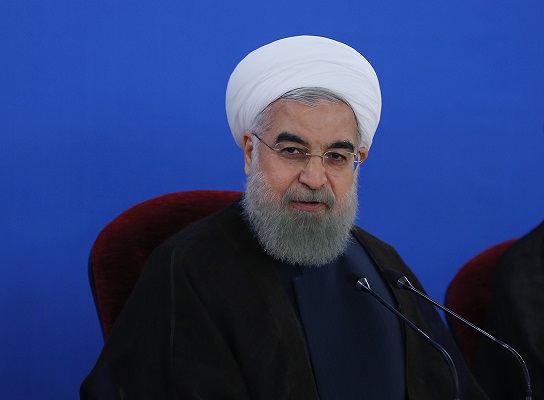Addressing a Wednesday cabinet meeting in Tehran, Rouhani noted that “Iran is a threat to no one. The Islamic Republic seeks stability and security in the whole region.”
However, he added, “it will defend its rights strongly.”
“Those who for 70 years have been fomenting chaos, war and destruction in the region and have committed genocide and caused the Sabra and Shatila [massacres], are not in a position to talk about Iran’s threat,” Rouhani said.
He was referring to the massacre of hundreds and perhaps thousands of civilians in the Palestinian refugee camps of Sabra and Shatila in southern Lebanon in 1982. Former Israeli premier Ariel Sharon, who at the time was Israel’s minister for military affairs, was commanding Israeli forces who had encircled the Sabra and Shatila camps while their allied forces were slaughtering the victims.
Rouhani’s comments came after Netanyahu described Iran as a danger and an aggressive empire in his address before the influential lobby group American Israel Public Affairs Committee (AIPAC) in Washington Tuesday, a day after talks with US President Donald Trump.
“Darkness is descending on our region. Iran is building an aggressive empire,” AFP quoted him as saying.
“The force behind so much of what is bad is this radical tyranny in Iran. I have a message for you today, it’s a very simple one: we must stop Iran, we will stop Iran,” Netanyahu claimed.
Rouhani further noted that regional governments need not to be wary of Iran’s power.
“History tells that no one should be wary of Iran’s weapons, missiles or its defensive power,” he said.
“During the years after the [1979] revolution, we never assaulted other countries, while there were opportunities we could take if we were after hegemonism”.
The president said Iran develops its military might for deterrence, not attacking other countries.
“We never bombarded our neighbours … and not only we didn’t displace people from their lands, but we embraced refugees from other countries”, Rouhani said, referring to Iran’s warm welcome of Kuwaitis and Iraqis fleeing the Iraqi invasion of Kuwait in 1990.
The war came shortly after the end of the Iran-Iraq war (1980-1988), during which Kuwait was a top sponsor of the former Iraqi dictator Saddam Hussein.
“Iran [seeks] stability and security in the whole region. We want all regional countries to be on the path of growth”, he said.
